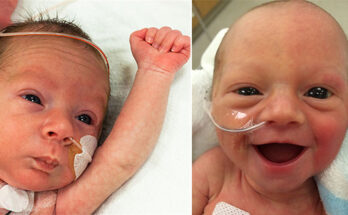Tammy Karin, a photographer living in Kansas, never passes up the chance to photograph a new-born baby. Tammy Karin, a photographer living in Kansas, never passes up the chance to photograph a new-born baby. To bring her child into the world, the mother has this “arm,” this “protective barrier,” as Karin describes. Although she has access to assistance if she so chooses or requires it, it almost seems as though this wonderful force field generated this cozier setting on its own.
The three-time mother of three Karin continues, “The childbirth stories I have the privilege to record have been handled by the most peaceful introductions to the world for newborns. It was a seamless transition from his mother’s arms to the stream of hot water and back into her arms. I would adore the chance to introduce my kids to the world in that manner.
According to Minneapolis-based photographer Jennifer Celine, what makes documenting water births unique is “watching emerge from the water in the arms of dad and/or mum.” The serenity, calmness, and beauty of a mother during the delivery of her child have been incredible to see, Celine stated.
After birth, according to the belief, “is gentler for the baby and less stressful for the mother because the baby has been in the amniotic bluid sac for nine months.” Several advantages are highlighted by advocates of water birth. It can lower blood pressure, induce relaxation, lessen non-medicinal discomfort, and make the mother feel more in control of the labor and delivery process. The baby can more easily assume various positions in the water because the weight of the mother’s pregnancy is reduced, and movement can assist the baby in descending the birth canal.
Even said, there are still debates in some circles about the university of obstetrics and gynecology giving birth in a pool of blood or even going into labor there. These striking pictures speak for themselves if you’ve ever wondered what an ater birth looks like.








